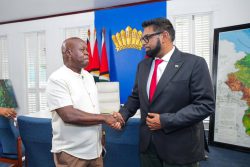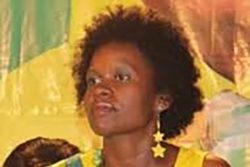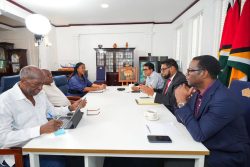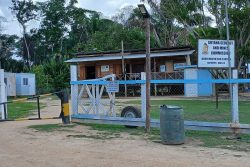HAVANA/WASHINGTON, (Reuters) – A visiting U.S. delegation wrapped up two days of talks on law-enforcement issues with Cuban officials in Havana yesterday, the State Department said, the first meeting of its kind since such negotiations were halted under former President Donald Trump.
Washington’s concerns about counterterrorism were among items on the agenda, U.S. officials had said. Trump placed Cuba on the U.S. list of state sponsors of terrorism shortly before his term ended in January 2021, and the Biden administration has been reviewing this since taking office.
This week’s meetings marked the revival of the law-enforcement dialogue, which was launched in 2015 under former President Barack Obama but was stopped in 2018 under Trump as he rolled back his predecessor’s historic detente with Communist-ruled Cuba.
President Joe Biden, who served as Obama’s vice president, has begun reversing some of Trump’s policies but has maintained others, insisting the Cuban government must improve its human rights record after a crackdown on protests in 2021.
“This type of dialogue enhances the national security of the United States through improved international law enforcement coordination,” the State Department said. But it stopped short of announcing any agreements between the Cold War-era foes.
The Cuban government did not immediately respond to a request for comment
The talks, which included the State Department, Justice Department and Homeland Security as well as FBI and immigration officials and the Coast Guard, had been expected to focus on combating cybercrime, terrorist threats and drug trafficking.
U.S. officials did not respond to a Reuters question whether the agenda included discussion of Cuba’s possible removal from the terrorism-sponsoring list. Cuba has called the designation a “slander” and false pretext to punish it economically.
Asked about the issue, a State Department spokesperson said: “After a careful review of all available information and intelligence, the Secretary of State will only designate or rescind SST designations after concluding that a country meets the relevant statutory criteria in accordance with applicable law.”
When asked whether the United States was considering delisting Cuba, State Department spokesman Vedant Patel told a daily briefing he had “no change in policy to announce” and said the Havana talks were specifically security-related.
It was the first Biden administration delegation known to have traveled to the island this year and appeared to signal increased openness to engage on specific issues of mutual interest despite icy relations.
The State Department said “this dialogue does not impact the administration’s continued focus on critical human rights issues in Cuba.”
U.S. and Cuban officials last year held talks on migration as Washington sought to stem the flow of Cubans to the United States by land and sea.









